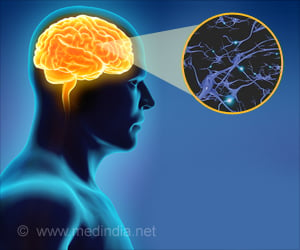World Multiple Sclerosis Day is observed on 30th May every year and aims to raise awareness on multiple sclerosis (MS). The theme for 2019 is ‘Visibility’ and the Campaign is called ‘My Invisible MS.’
- World Multiple Sclerosis Day is observed across the globe on 30th May every year
- The main objective of the campaign is to raise awareness of multiple sclerosis and provide support to MS patients throughout the world
- The Theme for 2019 is ‘Visibility’ and the Campaign is called ‘My Invisible MS’
World Multiple Sclerosis Day is observed on 30th May every year and was established in 2009 by the MS International Federation (MSIF) and its partners. Each year the organizers choose different themes, and over the years, have consistently reached a larger number of people across the globe. Representatives from many countries, especially USA, UK, India, Ireland, Egypt, Australia, Greece, Spain, and Argentina participate actively in planning and executing this grand annual event. The 2019 World Multiple Sclerosis Day Campaign is ‘My Invisible MS’ and the Theme is ‘Visibility’, which aim to raise awareness about the invisible symptoms of multiple sclerosis (MS) and its unseen impact on the quality of life of patients. The campaign will lend a voice to the 2.3 million MS sufferers across the globe. World Multiple Sclerosis Day brings together the global MS community to create awareness, share their experiences, and campaign with and for all people living with MS.
Multiple sclerosis is an autoimmune disease in which the immune system attacks the nerves and destroys the myelin sheath, disrupting the flow of nerve signals in the body. As a result, vision, movement, speech, and sensory perception can all become affected as these functions require effective communication between nerves.
Read More..
How is World Multiple Sclerosis Day Celebrated?
There are several World Multiple Sclerosis Day activities to contribute to the global efforts in highlighting the invisible symptoms of MS, some of which are highlighted below:- Organizing Events: Creating an event is a brilliant way to get to know the MS community. These events help to bring people together from various spheres of life to collectively celebrate World Multiple Sclerosis Day and generate awareness
- Lighting-up Landmarks: The awareness color for MS is ‘orange’. Thus, lighting-up major landmarks and prominent buildings in orange light is a fantastic way of creating awareness about MS in all major cities across the world
- Music & Dance: Many countries organize music and dance events on World Multiple Sclerosis Day to create awareness. Some of these include the ‘Rock for MS’ concert in USA, the Lebanese Association Against MS concert in Beirut, and music and dance performances organized by the Multiple Sclerosis Society of India
- Social Media: This medium is ideal for posting infographics, posters, news items, and stories highlighting the invisible symptoms of MS in a bid to spread the message and generate awareness about the disease
- Public Lectures: Popular lectures on the topic of MS delivered by experts, will enlighten the general public, generate awareness, as well as increase their understanding and compassion for people living with MS
- Art Exhibitions: Exhibiting artwork by MS patients will not only provide them encouragement, but also inspire others to take up a creative pursuit
- Real Life Stories: Multiple sclerosis patients are encouraged to come forward and share their experiences about the ‘invisible symptoms’ so that others come to know and understand more about MS. These real-life stories will help to do away with common misconceptions about the disease
- Lobbying & Advocacy: These activities will give a voice to MS sufferers for encouraging decision makers and lawmakers to take action and make positive changes for people living with MS
- ‘Walk for MS’: Walkathons are organized by various organizations across the world to create awareness about MS, as well as raise funds from sponsorships to help needy MS patients
- Fundraising: There are various types of fundraising activities, including online sponsorship opportunities. For example, the Multiple Sclerosis Society of New Zealand, which is a non-profit organization based in Christchurch, has online fundraising platforms like ‘Kiss Goodbye to MS’, ‘Givealittle’ and ‘Everyday Hero’ that can be used for raising funds for MS research and improving the quality of life of MS patients
- Networking: Developing vibrant networks between researchers, physicians, caregivers, volunteers, academicians, educationists, students, and MS patients and their families will help to improve the prospects for people living with MS
- Wearing ‘Orange’: ‘Orange’ is the awareness color for MS. So, wearing an orange ribbon, lapel pins, trinkets, T-shirts and other items can not only generate awareness and show solidarity, but also raise funds from the sales proceedings to help improve the lives of MS patients
World Multiple Sclerosis Day Celebrations in India
In India, a total of ten events are taking place to celebrate World Multiple Sclerosis Day. These include two in New Delhi, three in Pune, two in Bengaluru, and three in Chennai. Interestingly, the Chennai Chapter of the Multiple Sclerosis Society of India has come up with a novel idea to celebrate its 21st anniversary. It will light up 21 buildings across Chennai – one of each year of its existence – in support of people living with MS. Also, a ‘Human Chain Walk’ is being organized by the Pune Chapter of the Multiple Sclerosis Society of India to raise awareness about MS as a global issue.Multiple Sclerosis: Facts & Figures
- 2.3 million people are affected by MS worldwide
- 200,000 people in India suffer from MS
- 90 percent of MS patients experience fatigue
- 80 percent of MS patients experience urinary incontinence
- 60 percent of MS patients are not ambulatory 20 years after the first diagnosis
- 15-20 percent MS patients experience vision problems
- 1-3 percent of MS cases are genetically inherited
- MS occurs most frequently between the ages of 25 and 35 years
- MS patients generally have a normal life expectancy
- MS patients are twice as likely to develop depression and sleep disorders
- MS affects women 2 to 3 times more than men
- Men are likely to have more aggressive forms of MS
- 30 years is the average age of onset of MS
- 8 out of 10 people give up work within 15 years of onset of MS
Myths & Truths about Multiple Sclerosis
Myth | Truth |
MS is the same for everyone | Everyone’s MS is unique |
There’s no cure for MS, so there is clearly little or no progress in research | Research has generated many life-changing therapies |
People with MS are infertile | People with MS can have children |
People with MS can’t be employed | Most people with MS, especially those with less severe MS, can be employed |
MS is a terminal disease | Most people with MS live for decades after the first diagnosis |
People with MS shouldn’t exercise | Regular, moderate exercise can help improve the quality of life |
All MS patients will eventually need to use a wheelchair | Most MS patients don’t usually need a wheelchair regularly |
Accelerating Research: Role of Multiple Sclerosis Registries and Brain Banks
Multiple sclerosis registries and brain banks play a crucial role in expediting research. These are briefly highlighted below:- Multiple Sclerosis Registries: Multiple sclerosis registries are one of the many advances that have been made in MS research, which can help in finding a cure for the disease. Multiple sclerosis registries can help accelerate research, diagnosis, and treatment of MS patients. These registries can also be used to answer key research questions, aid in designing and conducting clinical trials, as well as provide long-term evidence on the efficacy of various treatments for MS. In fact, MS registries literally put MS patients at the heart of research. Some of the major MS registries include MSBase (Australia), OFSEP (France), the Danish MS Registry, the UK MS Registry, the Swedish MS Registry, and the German MS Registry
- Brain Banks: Brain banks are being used to accelerate research on MS, as well as other neurological diseases. Physical examination of the brain, which is the body’s most complex organ, is crucial for understanding the mechanisms involved in the pathogenesis of neurological diseases such as MS. Some of the major brain banks across the world include BrainNet Europe (a network of 19 brain banks across 11 European countries), the UK Brain Bank Network, the Netherlands Brain Bank, the Human Brain Tissue Repository (HBTR) in Bangalore, India, the Chinese Brain Bank Center (CBBC), the Australia Brain Bank, as well as Latin American brain banks in Brazil, Argentina, and Mexico
Health Tips for Multiple Sclerosis Patients
- Rest: Taking adequate rest whenever possible is important to relieve fatigue and weakness, which are characteristic symptoms of MS
- Exercise: Regular exercise such as walking, swimming, stationary cycling, and aerobics can help improve the symptoms
- Avoiding Heat Exposure: Exposure to heat, such as strong sunlight, hot showers, and hot air, should be avoided as a rise in body temperature can worsen symptoms
- Balanced Diet: Consumption of a well-balanced, healthy, and nutritious diet is important for maintaining optimal health and proper weight for MS patients
- Stress Relief: Relieving stress is very important for MS patients. Practicing yoga, meditation, Pranayama, massage, and Tai Chi can help relieve stress
- Social Support: A good social circle for people living with MS is very conducive for their mental and emotional wellbeing. These peer support groups allow patients to share their thoughts and feelings, which can help alleviate anxiety and concerns about living with the disease
References:
- World MS Day: #MyInvisibleMS - MS International Federation - (https://worldmsday.org/)
- World Multiple Sclerosis Day - National Health Portal, Ministry of Health & Family Welfare, Government of India - (https://pa.nhp.gov.in/World-Multiple-Sclerosis-Day_pg)
- World MS Day - Multiple Sclerosis New Zealand - (https://www.msnz.org.nz/world-ms-day/)
Source-Medindia















